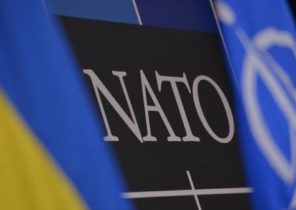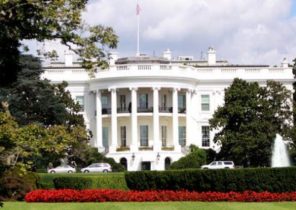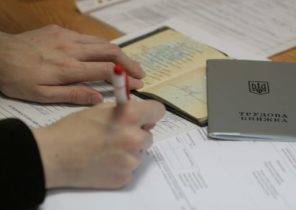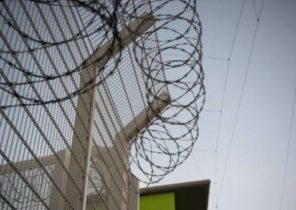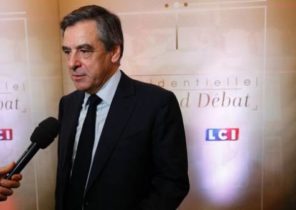
In support of his ideological and spatial onset of the regime of Vladimir Putin is engaged in personal reading of the German-Soviet Pact and the “great Patriotic war”.
How to explain the irresistible power of Putin’s Russia among a large part of the French political class? Olivier Schmitt raises this question in his book “Why Putin is our ally? The anatomy of French passions” (Pourquoi Poutine est notre allié? Anatomie d’une passion française). In this highly informative work examines four arguments that often lead to the justification of convergence: the image of Putin as a “true leader”, the existence of shared values between Russia and France, the interest of Paris to bring the large significance of the Alliance with Russia than relations with the United States. Below we present an excerpt from the Chapter on “shared values” about how Russia rewrites the history of the Second world war.
In an environment of widespread pseudo-science the false historical interpretations and absolute relativism we see political will of the Russian government with regard to the particular presentation of history to shift the focus of Patriotic feelings in the direction of support power. In 2009 it formed a Commission to counter attempts to falsify history to the detriment of Russia’s interests, the purpose of which, as the name implies, was the falsification of history, in the interests of the authorities. In 2013, the Commission was dissolved, and the government’s focused efforts to combat “falsification” in education, in particular through the introduction of a unified history textbook. Anyway, the selective revision of history was the result of the many political statements.
One of the main themes of historical revisionism the Kremlin is the Second world war. In 2014, Vladimir Putin has violated existed for a long time the ban and spoke out in defense of the Molotov-Ribbentrop Pact of 1939, because the interests of Moscow. This means that in 1939 Hitler didn’t have to give back, because so did Stalin, and had to base. Propagandists of the Russian regime are well-understood signal, and the Director of the new York office of the Institute of democracy and cooperation (the institution of the Russian government also has a branch in Paris) has even said that until 1939 Hitler was “good”.
Created by Vladimir Putin, the memory of the war is very different from the view of Western countries who had to fight Hitler in 1939 (this idea has deep roots in the establishment of Germany after the conflict). In addition, Putin thereby tacitly criticizes Poland, the first victim of world war II. Berlin five years (from 1934 to early 1939) tried to gain Alliance with Warsaw to the attack on the USSR, but did not succeed. At the same time, Ribbentrop took just three days in 1939 to the Soviet Union eagerly accepted the Alliance, which resulted in the destruction of Poland. After the defeat of Polish troops by the Red army staged a joint parade with the Wehrmacht, while the officers of the NKVD tracked down and eliminated the Polish elite.
Vladimir Putin justified the Molotov-Ribbentrop Pact that the Soviet Union felt themselves to be a devotee of the Western powers in Munich and saw for himself no other choice. That interpretation carefully pick up the supporters of his regime in France, like Jacques Sapir (Jacques Sapir). But this would mean to forget the actions of the USSR during the Sudeten crisis. The Union was waiting for the crisis the opportunity to expand into Central Europe and talked about the desire to deploy troops to defend Czechoslovakia, which for simple geographical reasons, would have required the invasion of Poland, Romania or both countries. As it is well shown by Timothy Snyder (Timothy Snyder), the Sudeten crisis was for the USSR a pretext for ethnic cleansing of people of Polish origin on its territory: the instructions of the NKVD was very clear and meant the elimination of all poles. During the Munich crisis, from 15 to 28 Sep 1938 1 thousand 226 people were killed. Vladimir Putin displaces these murders on the back burner and even justifies them, edging out the Polish victims of history.
Comrade Hitler
In the USSR and then in Russia has always co-existed two interpretations of the Second world war. The fact is that the Soviet Union has been on both sides of the fence: first — in the camp of the aggressors, and then in a broad Alliance with the United States after Hitler betrayed Stalin. For a long time the glorification of the “great Patriotic war” (1941-1945) allowed to represent the Soviet Union as the epicenter of resistance to the Nazi forces. About the Molotov-Ribbentrop Pact, in turn, chose to remain silent, and not so much because of its consequences (he was the impetus for the outbreak of the Second world war), but due to the fact that it was a mistake of Stalin. The agreement allowed German troops to approach the Soviet border, long before 1941, and helped Germany to become a European power, almost capture Moscow, and created the Soviet dictator the illusion of safety, which he rejected all the reports about the preparation of the German offensive, which became a complete surprise to him.
At the same time, rehabilitation of the Molotov-Ribbentrop Pact focuses on the period of aggression from 1939 to 1941, when the Soviet Union attempted to invade Finland (“winter war” came at a cost to the attackers) and the Baltic States, where the justification of aggression was held bogus referendums. The current Russian political climate with the glorification of aggression against Georgia and Ukraine in an obvious way pushes to the rise of this period of history in which there is a frightening similarity with the modern Russia. From 1939 to 1941 the Soviet propaganda was Nazi Germany a friendly nation, the leadership spoke of “comrade Hitler” and “the triumph of international fascism”, and the public buildings appeared, the swastika.
This ideological confusion can be seen in Russia today: state TV claims that Jews were themselves to blame for their elimination, the ultra-right are parade on may 9th (this date is considered the end of the Second world war in Russia) and homophobic campaign represented a means of protection from Western civilization.
This tacit acceptance of Nazism (it runs parallel with the glorification of Stalinism) is reflected in the rhetoric of the French sang the Russian regime: right-wing writer Nicolas Bonnal (Nicolas Bonnal) claims on the website Sputnik News that “General de Gaulle had always sought rapprochement with Russia, even if it was headed by Marshal Stalin. He looked under his pen the kind giant, who had to learn to negotiate.” Such an assertion is contrary to historical facts: de Gaulle always knew who were his allies and who the enemies are (he proved it during the Cuban crisis). And although he withdrew from the military structure of NATO due to differences on the strategy of nuclear deterrence, he never questioned the importance of the Alliance.
Moreover, the same article States: “Roosevelt knew that conquered the world with this unnecessary European war, which he himself had helped”. In other words, the Second world has nothing to do with the aggression of Hitler’s regime, its racism and expansionism, but is just the result of us conspiracy against Europe. The language used is historical nonsense (the us military cemetery in France testify to the US involvement in the conflict, simultaneously in Europe and Asia), but its revisionism argues that Nazism was just the usual political regime, the unfortunate victim of the desire of America to dominate the world.
Verbal tricks
At the same time the Russian regime continues to rely on memories about the great Patriotic war in an attempt to create a positive image of Stalinism in Russian history. In addition, he still enjoys inherited from the Soviet Union, rhetorical techniques, and in particular the accusations of “Nazism” and “fascism” to discredit opponents. So, during the Ukrainian revolution 2014, Russian propaganda called the demonstrators “fascists” and “neo-Nazis”, with special emphasis on (if confirmed) the presence among the opposition members of the far-right party “Freedom”.
We are talking about the old tactics that puts all traffic on a level the most radical of its members and submits it sound like their motives shared by all the demonstrators. Of course, such rhetorical manipulation is absolutely not trustworthy (it’s like saying that the movement of may 1968 in France was a Trotskyist, because among the demonstrators was Alain kryvyn), but they are well represented in the rhetoric of Moscow and its Western supporters, who regularly mention “the Nazis in power in Kiev.” Only here the candidate from “Freedom” gained only 1.16% of the presidential elections in 2014, which followed the ousting of Viktor Yanukovych. This allows you to assess the true extent of the popularity of right-wing radicals in the Ukrainian people. At the same time, all European extreme right (in particular and neo-fascists) was invited by the Moscow “observers” of the phony referendum in Crimea in 2014. All this poses the obvious rhetorical manipulation: Russia shamelessly calls the opposition “fascists” and “Nazis”, but at the same time, supports the European far right.
In addition, the official rehabilitation of the Molotov-Ribbentrop Pact, the current Russian regime creates different from Western European memory about the conflict, supporting aggression and ideological confusion between ultra & ultra and. Ultimately, however, this ideological orientation is hardly surprising, but it is adopted by Russia the tactics of interaction with the European right-wing radicals.

